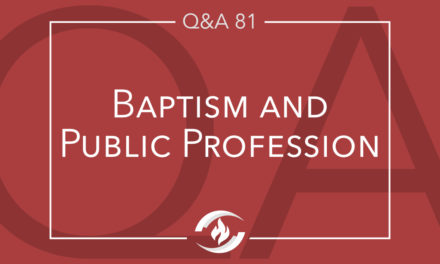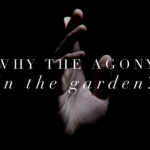Q.
Brother John,
What do you believe are/is the “fruit” in John 15:2-5? Is it works? Is it the “fruit of the Spirit” in Galatians 5?
Shawn
A.
Hello Shawn,
This is a question many ponder. I believe the safest answer may be found by focusing on the context right in John 15.
Explicitly, Jesus is the true vine, and the Father is the vinedresser. Implicitly, the Holy Spirit, mentioned often in the preceding chapter and the following chapter, is the sap of the vine. Again, explicitly, believers are the branches in the vine.
Jesus makes clear from this analogy that the branches are to abide in the vine for the purpose of bearing fruit. When believers abide in Christ, He abides in them, and as a result of this double abiding, they bear fruit for His glory. So what is the fruit?
Inherent in the very analogy is the fact that the fruit is produced by the life of the vine—divine life. Therefore, the fruit is the manifestation of divine life. The text indicates this involves two aspects.
First, the fruit includes the fruitful character of Christ within us. The fruit of the Spirit revealing the character of the divine life of Jesus is even stated in the very context. The word love is used nine times (15:9-17). The word joy is used two times (15:11). Obviously, this parallels the first two graces listed in the fruit of the Spirit delineation in Galatians 5:22-23.
Second, the fruit includes the fruitful ministry of Christ through us. Jesus said He came not to be ministered unto, but to minister (Matt. 20:28). When we abide in Christ, He abides in us. When He abides in us, we are experiencing Jesus. Yet while we experience Jesus, He is ministering to those around us. They get to eat the fruit!
Ministry to others can involve many expressions. This ministry would include the lost, ultimately for the salvation of their souls. Jesus said we are chosen and appointed to “go and bring forth fruit” (15:16). The “going” seems to move beyond the fruit of the Spirit emphasized earlier to impact on others through that fruit. Certainly, this includes reproduction, especially since Jesus said that fruit “should remain [lit. abide].” So the reproduction begins the whole process over again.
This is a passage we can all keep pondering over for its richness.
John











